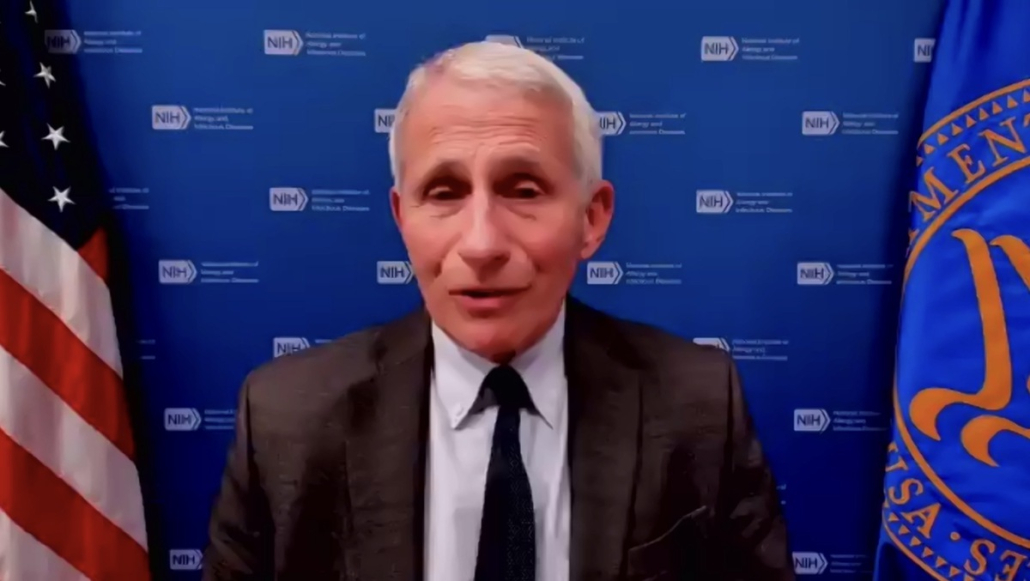Dr. Fauci discusses the current state of the pandemic and emerging monkeypox risks

Dr. Anthony Fauci attended a virtual conversation hosted by the USC Center for Health Journalism Tuesday, discussing with Dan Diamond, the national health reporter from The Washington Post, to talk about the emerging threat posed by monkeypox, the status quo of the coronavirus pandemic, and the lessons that both the government and public learned on how to respond to infectious diseases.
The event is part of the Health Matters webinar series organized by the Center for Health Journalism. According to Michelle Levander, the center’s founding director, her team had been preparing for the event with Fauci as the monkeypox virus started to spread, and Fauci decided to step back from his position as President Joe Biden’s top medical adviser and the director of the National Institute of Allergy and Infectious Diseases.
“He’s retiring right now,” Levander said. “That’s when [Fauci] might be more philosophical and reflect on what [he has] accomplished.”
At the top of the event, Fauci first discussed the current status of the coronavirus pandemic, a “relative” matter that he thinks is too soon to proclaim over.
“I don’t think we can say [it’s] the end — being no more COVID is in sight,” Fauci said, echoing Biden’s recent declaration that the pandemic is over. “Now we are at much, much lower [number of cases and deaths]. Relatively speaking, it is less,s…Bbut it is still at a level that I have been very public about saying that I am not comfortable with having more than three to four hundred deaths per day.”
Fauci also stressed that the upcoming winter season and potential new variants of the virus might exacerbate the situation in the future. The most recent emerging subvariant of Omicron — BA.2.75.2, reported in 47 countries and 39 states — has been alarming to many scientists as it can elude the immunity provided by current vaccines and cannot be neutralized by many current antiviral drug treatments.
“Even though BA.5 is still the dominant variant, you have the creeping up of sublineages like BA.4.6; we don’t have much of BA.2.75.2 yet, but there are other countries that do have that,” Fauci said. “So, although we can feel good that we are going in the right direction, we can’t let our guard down.”
After stressing that people should be inoculated with the recently updated bivalent booster shots to better prevent the spread of the predominant BA.5 variant, Fauci then reflected on the lessons that the public should learn from the coronavirus pandemic — including highlighting the difficulty of making public health decisions and disease prevention recommendations within the evolving conditions of a pandemic.
Specifically, Fauci claimed that in the context of the pandemic, where additional information, data and evidence came to experts’ attention every day, different — or even contradictory — decisions may be made.
“At one point in time, you don’t have the information that is really necessary to make the ultimate, correct recommendation that may have been correct at the time. But as it evolved, it turns out, [the decision] wasn’t correct,” Fauci said.
Fauci also underscored how social media platforms and the divisiveness of the current political society make it particularly difficult to deliver the hard truth about the pandemic to the public.
“One of the problems is that when you talk about the hard truth and say it in a sentence, given social media and how things [are turned into] misinformation and disinformation, a lot of times there’s a lot of misrepresentation of what a message is,” Fauci said. “If we had true honesty, true transparency, [and did] not [let] things get entangled with social media, it would be much easier [for the public] to get a coherent message of what risks are.”
Fauci also believed that the lessons we have learned in the past could be useful in containing the spread of the monkeypox virus.
“If lessons learned are really learned, we would do better,” Fauci said.
As the event closed with a Q&A section, Fauci urged public health workers and officials to “stick with the science and the data” while reflecting on how he was mired in political discussions and conflicts.
“When I say we should get vaccinated because it saves lives, and someone says no, am I the polarizing figure?” Fauci said. “What I’ve tried to do is to just stay out of the politics.”
Fauci officially announced his decision to leave government service by the end of the year in August. Nevertheless, retirement from the public service seems unable to rescue him from political reprisal as top Republicans in Congress vowed to investigate him about the National Institute of Health’s financial support to a lab in Wuhan, China.

